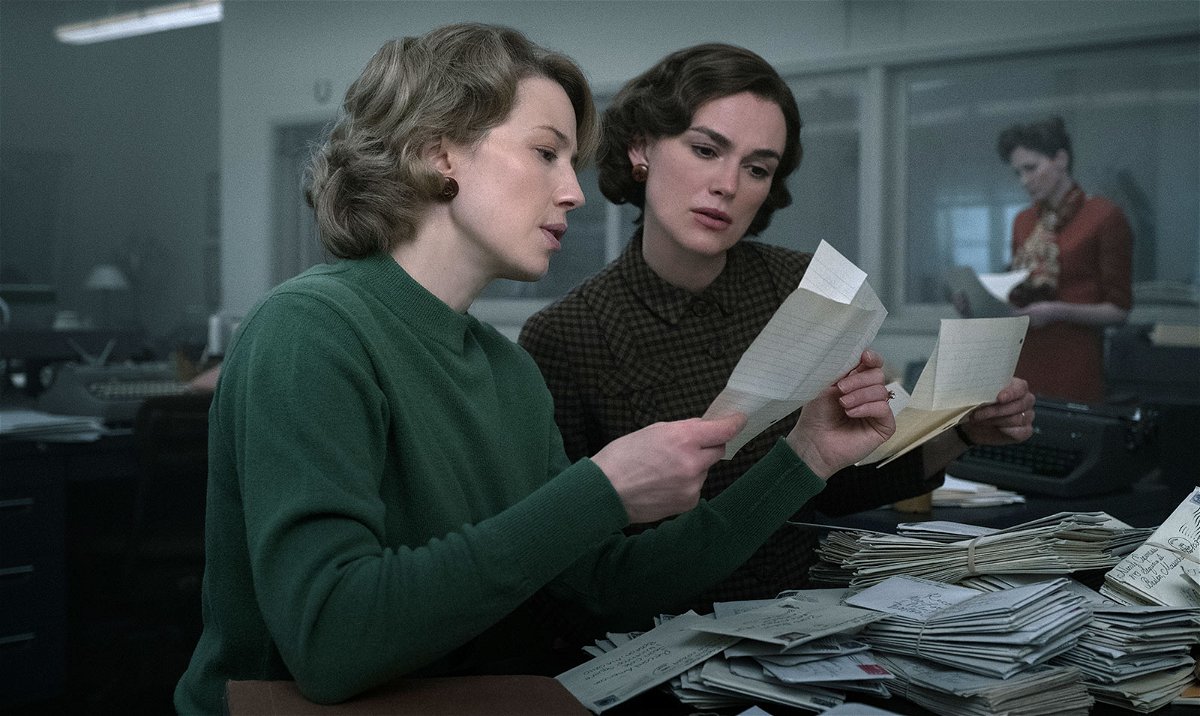‘Boston Strangler’ unravels the politics and doubts around the serial-killer case

'Boston Strangler' unravels the politics and doubts around the serial-killer case.
Review by Brian Lowry, CNN
It’s hard to keep serial killers down for long when it comes to movies and TV, especially when questions linger about the underlying case. “Boston Strangler” seems much cut from that “Zodiac” true-crime cloth, also placing the focus on an intrepid journalist, in this case at a newspaper that, notably, no longer exists.
To those whose knowledge of the case begins and ends with the conviction of Albert DeSalvo, or who remember the highly fictionalized movie that starred Tony Curtis, this taut film (premiering, somewhat surprisingly, directly on Hulu) indicates it might warrant another look. Watching reporters navigate the maze of Boston politics also brings to mind the Oscar-winning “Spotlight,” on a lesser level, with an especially pointed note of misogyny and sexism in this early-1960s setting for good measure.
Keira Knightley plays the aforementioned reporter, Loretta McLaughlin, who is pigeonholed writing about household products when she takes an interest in the unexplained murders happening around town. Teaming up with another female reporter, Jean Cole (Carrie Coon), she begins delving into the story, receiving grudging support from her editor (Chris Cooper) at the Boston Record American, a tabloid that was later absorbed through mergers into the Boston Herald.
The paper’s management is reluctant to appear overly critical of the police, despite the fact that they seem to be botching the case. A principled cop (Alessandro Nivola) shares Loretta’s skepticism about the investigation, which ignores some of the contradictions involving the 13 victims slain from 1962 to 1964.
Writer-director Matt Ruskin (“Crown Heights”) nicely captures both the hurdles and indignities Loretta faced as a woman in this male-dominated world — such as the paper seeking to cash in on her photo, much to her chagrin — and the palpable fear that gripped the city, another echo of Zodiac.
Loretta keeps reporting even after DeSalvo’s arrest, but finds that the key constituencies, from the police to the media, have little appetite for pursuing whether others were involved. Her commitment also takes a toll at home, as her at-first-supportive husband (“The Gilded Age’s” Morgan Spector) becomes increasingly frustrated, feeling neglected due to the time that she’s devoting to work.
“The entire city just wanted to move on,” Loretta concludes, even if the debate over the investigation, and whether it was legitimately resolved, has continued decades later, including the use of DNA evidence.
The movie’s focus is diluted somewhat by its emphasis on Loretta’s story, as she fights both for the victims and to be taken seriously in making the leap from the features section to the front page.
Still, given the enduring fascination with such material, underscored by all the recent productions about Jeffrey Dahmer and Ted Bundy, this is one of those stories that seems ripe for a redo. Because even with the uncertainty the one thing “Boston Strangler” makes clear — 55 years after the previous movie — is that when it comes to true crime, some things never go out of style.
“Boston Strangler” premieres March 17 on Hulu. It’s rated R.
The-CNN-Wire
™ & © 2023 Cable News Network, Inc., a Warner Bros. Discovery Company. All rights reserved.